By Umay Zahra Hussain
‘Shaam e ghareeban’ also known as the evening of the strangers/lonely, is the night of 10th Muharram. On this evening, after 8 hours of the barbaric killing of Imam Hussain (a), members of the family of the Prophet Muhammad (s) and their companions, the women of His household, Imam Hussain’s (a) son, Imam Ali ibn Hussain (a), & children were taken as captives. Barbaric killing quickly summarises details that include Imam Hussain (a) being surrounded by an army of 30,000 persons & attacked with swords, daggers, arrows, stones, those who had nothing – sand. The same Imam Hussain (a) who learned to crawl & walk on the Prophet’s (s) body, now had a man sitting on his chest, with his hands in His blessed hair, beheading Him (a) with a blunt knife as His sister Sayeda Zainab (a) looked on. The Prince of Paradise. His holy body trampled and crushed under the hooves of horses and left without a shroud or burial. A very quick summary of what we know.
Scholars tell us that they do not narrate the complete details of the martyrdom because they are so excruciatingly painful that the lovers of the Ahlulbayt (a) would die in grief. The fourth Shia Imam, Ali ibn Hussain (a) who was present in Karbala says if you saw what happened to my father you would never smile again. From a personal experience, reading & witnessing millions around me remember this tragedy, it’s true this grief can have this effect because reflecting on what took place & understanding that leaving anyone without a burial shroud or burial is one of the greatest injustices, yet a man who was the beloved of God’s beloved was left without a burial in those circumstances is heart wrenching.
This grief is not insanity, neither is it extreme to shed tears or to beat your chest. It’s human nature, a gift that God has placed within us as an elixir of prosperity in His servitude. When life becomes robotic, religious practices become ritualistic & the days pass without any internal evaluation and understanding, love & emotions are a blessing from God and in His path they give us purpose.
“And I created not the jinn and mankind except that they should worship me” (Quran 51:56)
When Imam Hussain (a) was born, Prophet Muhammad (s) cried so much knowing that His grandson would be killed innocent & oppressed that His eyes became a river and the space around Him an ocean. He spent His life telling people to treat His family well so much that God revealed a verse in the Quran making it an obligation on Muslims to love what they love and hate what they hate (Quran 42:23). Prophet Yaqub (a) cried so much for temporarily being separated from His son, whilst knowing He would be returned to Him, that He became blind. Prophet Muhammad (s) was in so much grief at the death of his uncle & wife that the year is known as grief. Prophet Muhammad (s) specifically asked his family members including women to gather and mourn the martyrdom of his uncle Hamza (as). This grief isn’t a complaint to God, except when praying for the hastening of justice, neither does it detract from His blessings. Rather it allows us to reflect on our purpose in this life and can act as a catapult to spiritual heights.
Grief and loss allow one to question to what extent do I believe in “we belong to Allah, and verily to Him do we return” (Quran 2:156) and what is the application of this in my life? “We belong to Allah” means the flesh & bones that carry us are a loan from God to what extent do we use this body to stand against evil & enjoin in good? It also means our inner self, our thoughts, presence of the heart and decision-making abilities. How much of this have we returned to God by avoiding that which displeases Him before our death in this life? How much of our family, friends, children, homes and blessings are we ready to give? How much have we understood that none of this belongs to us and our aim in life is to wholly return to God through this servitude before we are returned. This questioning and thought process is a sign of humility that attracts God’s forgiveness.
Karbala and the grief of Imam Hussain (a) acts as a litmus test to measure our journey of return. How did Imam Hussain (a) give up His 6-month-old baby & still ask God if He was pleased with Him? What is this humility? When God said in Hadith Qudsi, He was a treasure and He wanted to be known – that treasure is found in this grief. It is found in the twinkling of the eyes filled with tears whilst being beheaded thinking about what will happen to His children and the women, thinking about the misguidance that led to this oppression. During His final moments, God told Imam Hussain (a)
“O contented soul! Return to your Lord, well pleased with Him and well pleasing to Him” (Quran 89:28).
There is divine wisdom in the intermingling of pain, tragedy, valour, courage & humility in this moment that shouldn’t be dismissed. God tells us that this is the peak of servitude and grief sits at the centre of it. It is a sanctified and powerful tool. The peak of servitude here is that God now asks His servant if the servant is pleased with Him, is there anything else He wants to say or give now that the treasure is known.
The pain the Imam (a) experienced mobilised His sister, Sayeda Zaynab (a), Imam Ali ibn Hussain (a) and the 44 women and children taken as captives to continue in their stand against injustice, to effect reform in the authority that had spilled misguidance into the religion of Islam. This grief has mobilised millions of people to stand up against wrongdoing, it has mobilised millions to come together to reflect & seek reformation in their servitude to God, to change the world around them. It has mobilised millions to return to God in their daily life by enjoining in good and forbidding evil. 30,000 or the whole of humanity, through His complete submission the Imam (a) is a servant who manifested the majesty of God in Karbala, which acts as an inspiration for millions, thousands of years later. This is the power of grief.
I am aptly reminded of this verse in Holy Quran when God says:
“Surely, those who were given knowledge before it, when it is read unto them, fall down and prostrate on their faces in reverence, saying: ‘Glory to our Lord! Verily, the promise of our Lord must be fulfilled. They fall down on their faces, weeping, and it increases humility in them” (Quran 17:107-109)
This manifestation is continued in Sayeda Zainab (a) immediately after Imam Hussain’s (as) martyrdom. Whilst tents were set on fire and the world’s chaos and violence unfolded before her eyes during the evening of the lonely, she is bowing in prostration in humility before her Lord. This manifestation of God’s glory has given her strength and forbearance. Her faith unshaken, just like her brother, her return to God is seen in this grief-stricken glory. Her nephew, Imam Ali ibn Hussain (a), who at the time is suffering from an illness also displays remarkable resilience bowing simultaneously amongst the flames.
This is Zainab, this is Ali calling upon their grandfather Abraham – come watch us as we pass through the fire in God’s glory just as you did, come feel the heat of the flames, not as cool as you did. Raise your hands over our great sacrifice Abraham. Accept from us this sacrifice. Catapulted into spiritual heights aren’t we. We are the catapult to spiritual heights, aren’t we?
I am reminded of one of my favourite lines of poetry by Pakistani poet Mir Takallum Mir, he says in Urdu:
امبیا بھی جو نہ کر پائے کولے ہاتھ سے کام زینب نے کیا ہیں وو بندے ہاتھ سے
Translation: (In her submission to God) Zainab did those works with her hands tied, that Prophets were unable to do with their hands untied
How did this grief give them strength after such a tragedy? What is this ultimate servitude and humility that has left us bewildered? And how can Imam Hussain (a) help me understand this? Who is the God of Imam Hussain (a) & why have I not understood Him yet?
So yes, let me start by reading about Karbala & the tragedies that befell this family. If I shed a tear or slap my chest, let me be reminded that these tears can change the course of humanity. Let these tears help me prepare for my meeting with God. Let this grief give me the strength to submit to God in my trials and let them allow me to do good & forbid evil. Let me feel and ignite the fire within so I can understand what the reality of the belief in One God actually is. If I still do not understand the purpose of this grief, it is enough for me to follow the path of the Holy Prophet Muhammad (s) and feel what He felt.
For now, if you ask me what the oneness of God is? It is Imam Hussain’s (a) blessed head atop a spear showing His sister that He is nothing but the beauty of God. The moon upon spears. Peace be upon Aba Abdillah, salutation from the one whose heart is wounded due to the tribulations you have suffered and whose tears flow in your remembrance.
I end this piece with a poem composed by a companion of the sixth Shia Imam Jafar Al-Sadiq (as), which He requested Him to read so that the Imam’s (a) family and women of His household could shed tears and wail in the remembrance of the Imam Hussain (a).
Abu Haroon Makfuf had said:
O current of the morning breeze!
When you pass by Karbala, convey the message and salutation of us, the lovers, and tell the sanctified bones of his pure body that they would be continuously watered by the tears of the mourners of Al Husayn. They would continue to shed tears in order to quench your thirst. One day, you were denied water and Master Al-Husayn was martyred thirsty. However, now his Shias (followers) will always sacrifice tears on him.
O morning breeze!
When you pass by the grave of Al Husayn, do not say only this much. Do wait there for some time and cry much upon his sufferings. Your weeping should not be like an ordinary person. Cry like a mother whose only son has died. Yes, cry like a distressed mother separated from her only son for Imam AlHusayn (A) who was pure and his mother and father were also pure.
I would like to dedicate this piece to my grandmother, Akhtar Begum, who passed away on the night of 10th Muharram UK time and sunrise of 11th Muharram, in her hometown in 2022. If you are able to, please recite a prayer and, or a Surah Al-Fatiha for her soul. May Allah ease the hearts of those experiencing grief around the world and may the tragedies of Karbala give them hope and strength.
I am killed for tears; no believer would mention me but his eyes would fill with tears – Imam Hussain (as)
Notes / Abbreviations:
(a) – Alay salaam – peace be upon Him/Her
(s) – Salutations upon Him and His Family.
Ahlulbayt – family of the Holy Prophet Muhammad
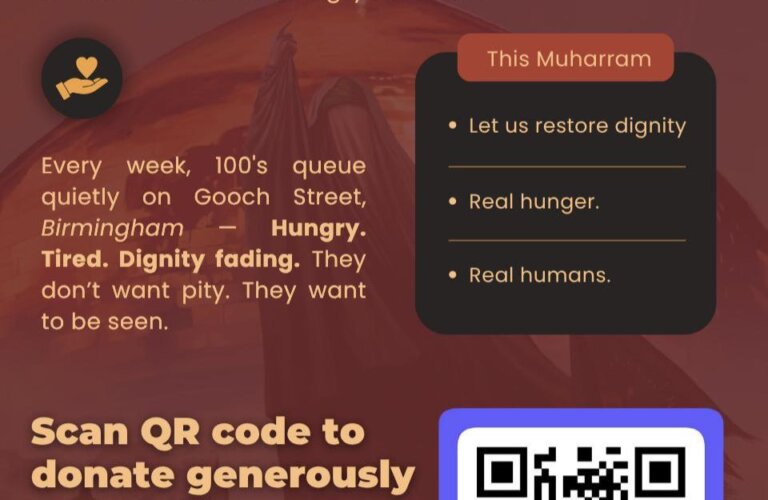
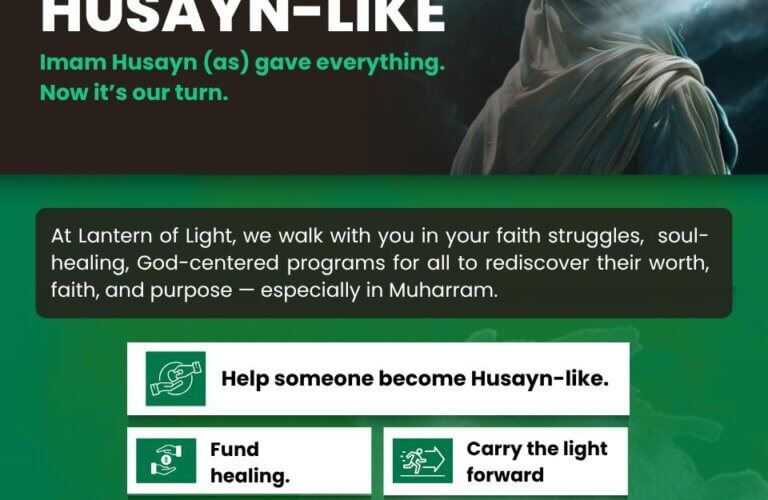
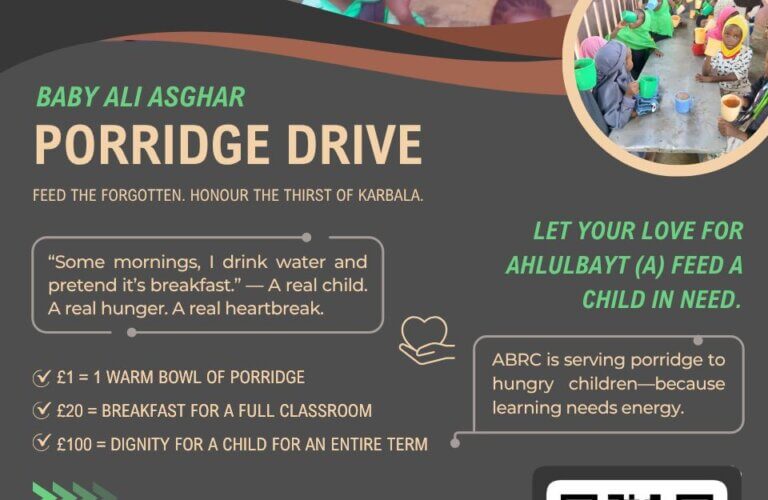
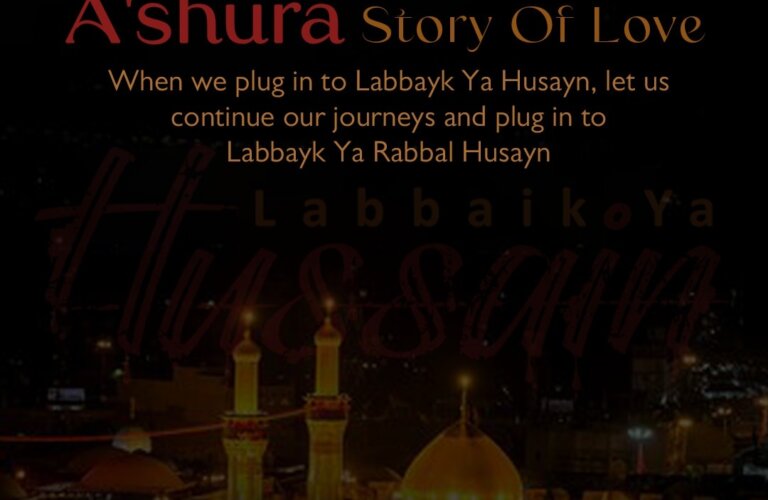
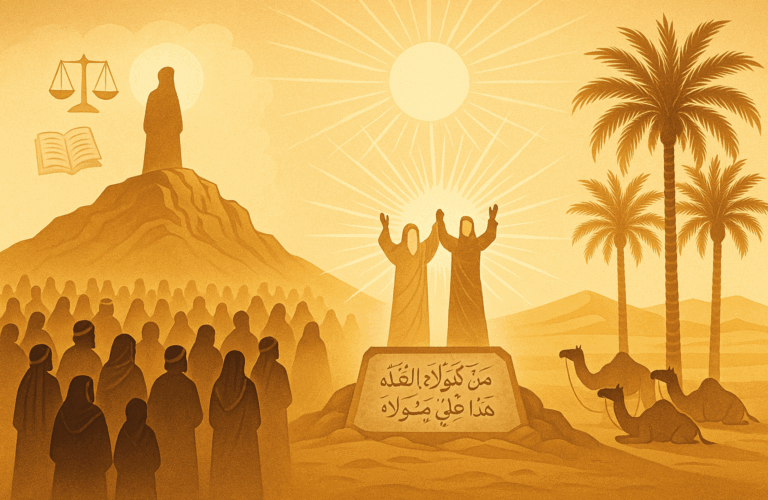
Comments